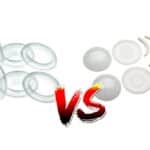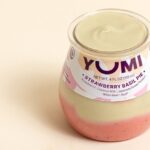As parents, we often get excited when our babies try new foods. Fruit is a great healthy choice, but we should know how different fruits affect our little ones.
In this case, let’s look at oranges. They’re acidic and pulpy, so the rules differ in how we can consume them and how babies can.
I’ve gathered some research to learn more about toddlers eating oranges to help give you some peace of mind when trying new foods.
When Can Babies Have Mandarin Oranges?
Between the ages of 1-3 years, our toddlers are beginning to eat more solid foods, and this includes the likes of oranges.
The trick here is to introduce things slowly after their first year. Canned oranges are easy since there’s no peeling needed and no membrane attached. This makes them easier to chew.
At the same time, some canned fruits have a higher sugar count, so take that into consideration beforehand.
View in gallery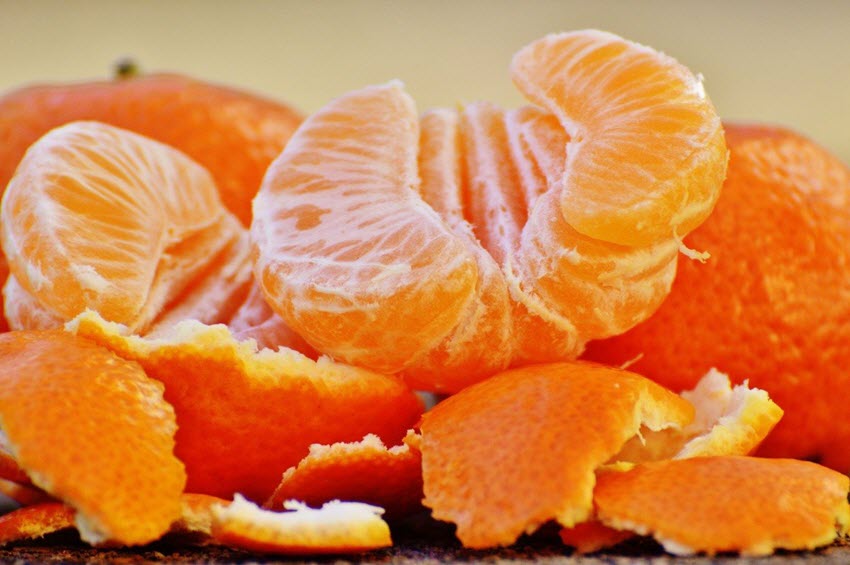
How do you Serve Oranges for Babies?
Since your little one has made the plunge into solid foods, there’s no need to puree anything. You can always give them some fresh-squeezed orange juice or 100% fruit juice from the store.
If you want them to eat the oranges, then keep in mind that babies can still choke. In fact, there’s a rather lengthy list of choking hazards for your child, so when you’re thinking about serving them oranges, always take their age into account.
Peel, Slice, Serve
The most obvious way to serve your child an orange is to peel it yourself. Remember to remove that tough membrane as it can give them some problems. Also, de-seed the orange so there are no smaller choking hazards around.
View in gallery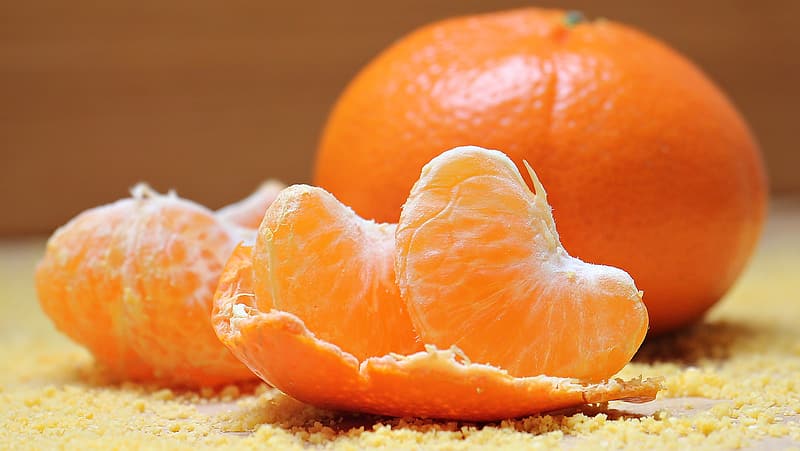
Once you’ve done away with all that stuff, you can slice the orange into more manageable, bite-sized pieces. This can help reduce the chances of them choking.
If your toddler is a bit older, perhaps they can eat normal-sized slices of oranges. Some toddlers can even manage with the peel remaining, but this may depend on their age and understanding that they can’t fit the entire thing in their mouth.
Toddler Throwing Up Oranges?
By the toddler stage, issues like food allergies may begin to show themselves. If your toddler is throwing up oranges, be on the lookout for additional food allergy-related symptoms such as hives, a red rash around their mouth, diarrhea, and belly pain.
If there’s no allergy, perhaps the amount of acid in the oranges isn’t agreeing with your toddler’s system as in the case with acid reflux.
Once this is a consistent issue, don’t hesitate to alert your pediatrician so that they can further examine your baby.
Undigested Mandarin Oranges in Poop
Most health experts would agree that most causes of undigested food in your child’s poop are not alarming. In many cases, their little bodies are simply not digesting well because babies poop more frequently than older kids and adults.
If you’re noticing mandarin oranges in their stool, then perhaps that is the case. Or maybe they’re not actually chewing their food well, so they’re swallowing the pieces you give them whole.
Although this isn’t an immediate cause for concern, if your child has any other symptoms like a lack of energy, contact your physician to see if there may be an underlying cause.
When Can Babies Have Citrus Juice?
Are you as eager as I was to steer your baby away from drinking just formula or breast milk? Once they’ve grown beyond that stage, you can begin introducing fruit juice to them. This usually happens after six months of age or so.
View in gallery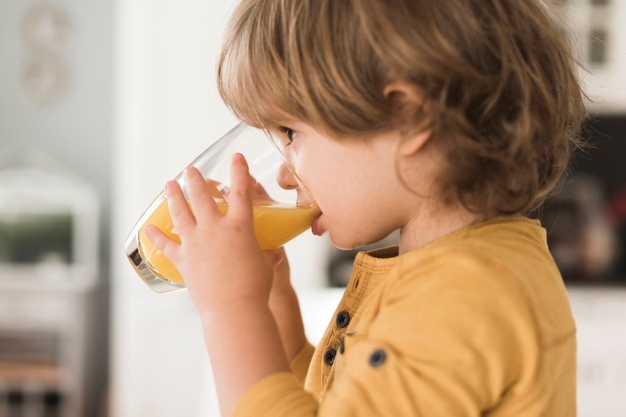
Of course, the recommended guidelines for fruit juice consumption in kids change, so keep an eye out on the news.
The safe age to start your baby on citrus fruit juice is after the first year. It’s always better to opt for 100% fruit juice since that doesn’t contain as much sugar. Also, the nutritional value remains.
Is Citrus Acid Safe for Babies?
In general, citric acid is deemed safe. Other than in its natural form in the case of oranges and other fruits, citric acid is used as a preservative in a lot of food items such as some baby food. So, your little bundle of joy has probably been consuming trace amounts of citric acid for a long time.
With babies though, moderation is always a good rule of thumb. Just because the compound is generally safe, that doesn’t mean you should overload your baby with it.
Don’t forget to keep an eye out in case they have an allergy to citric acid. It’s rare, but it can happen, so watch out for the symptoms.
Is Orange Juice Okay for Babies with a Cold?
How often have you told your child to drink when they’re sick? We know how important it is, but all our little ones are feeling is misery thanks to an annoying cold.
Preventing Dehydration
No matter how they feel, it’s vital that they stay hydrated, and juice usually helps. It’s flavorful and may actually convince your kid to keep pushing fluids.
If your child is suffering from a sore throat with their cold, then orange juice may not be the best option. The acid in it can easily irritate their throat more, which may put them off from drinking again.
Immune Boosting
At the same time, orange juice packs a lot of Vitamin C, which can be plenty useful in cutting down how long they’re sick.
If your little one isn’t complaining about the juice hurting their throat, then feel free to push orange juice on them to help boost their immune system and ease away that cold.
Is Ascorbic Acid Okay for Babies?
Many use ascorbic acid and Vitamin C interchangeably since they’re nearly the same thing. As such, we should believe it’s generally safe that your baby consumes something with ascorbic acid in it.
If you have any concerns, know that the FDA does list ascorbic acid as generally safe to consume.
When it comes to your baby, always remember moderation. Try not to give it to them too often as it may upset their stomach and lead to acid reflux.
Conclusion
So, how many oranges can your toddler safely consume? There’s no set number, but treat the oranges as you would any other food. Don’t let them overeat as the acidity can begin to bother their sensitive stomachs.
When it comes to fruit juices, search for ones that are 100% fruit juice or organic as they don’t have a high sugar count.
Always watch your toddler when they’re eating slices, and remember to cut them into manageable sizes so there’s no risk of them swallowing something too large and choking.

